Four-time Olympic gold medallist Cate Campbell’s extraordinary training drill —and biggest weapon — that made her one of the world’s greatest swimmers
It takes both mental strength and physical strength to be the best in the world. It was the price champion swimmer Cate Campbell was willing to pay. Now, in retirement, Campbell reveals the extraordinary lengths she went to and her biggest weapon in pursuit of greatness.
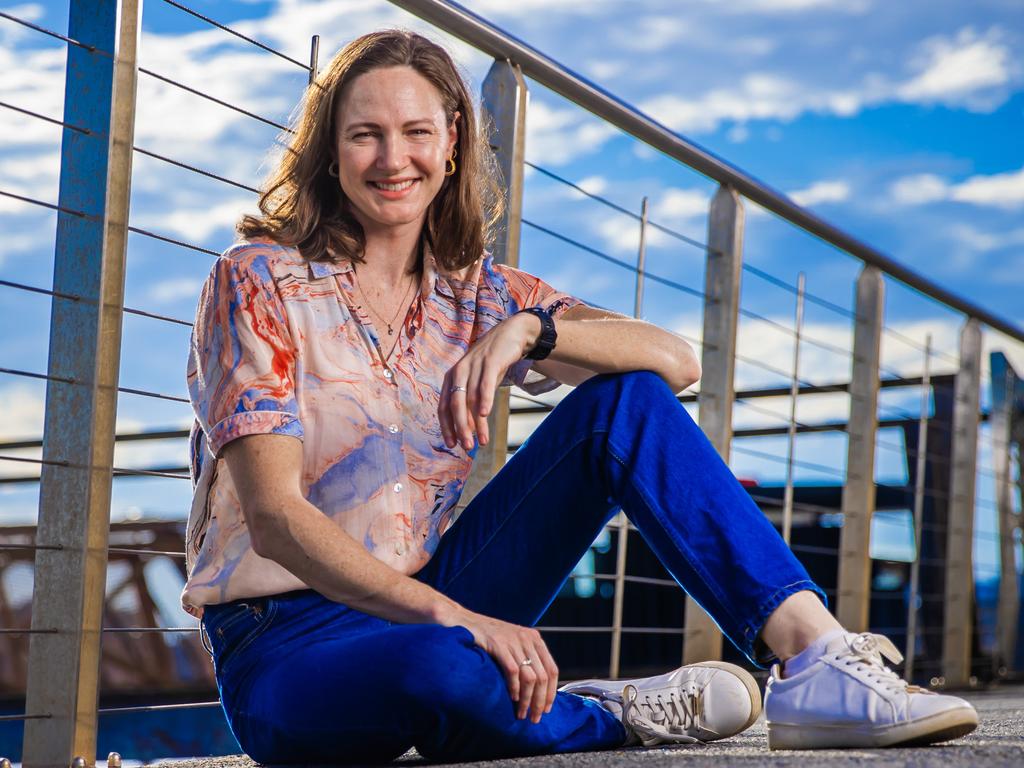
Olympics
Don't miss out on the headlines from Olympics. Followed categories will be added to My News.
Not much gets unnoticed in modern sport but a secret tactic used by Cate and Bronte Campbell slipped through the cracks.
They used it to fireproof their relationship after matching stroke for furious stroke in the heat of battle when they were, as the song goes, sisters doing it for themselves.
It was a clever little manoeuvre, quite quirky given it was in direct contrast to the way the two Olympic swim champions lived the rest of their lives.
The Campbell sisters may have roomed together at major meets, got the bus together to the pool but at the end of major races, whether in triumph or despair they shared their instantly raw emotions first up with – wait for it – anyone but their sister.
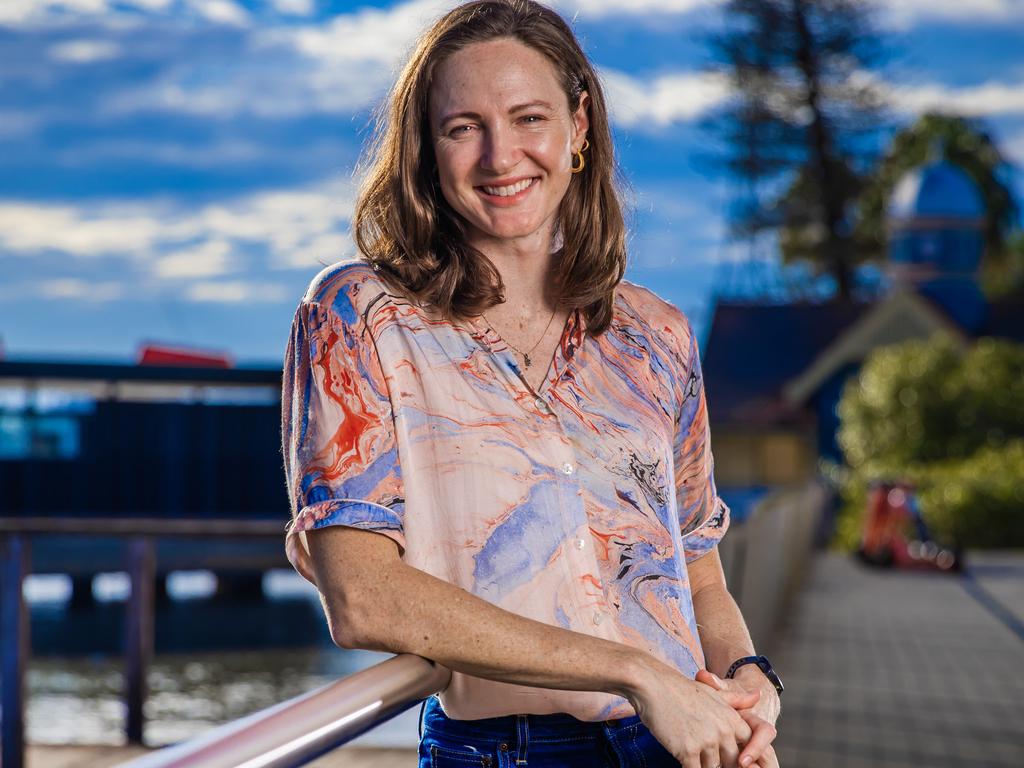
“In the early years we would come together straight after the race but the problem was the person who had done really well had to dampen their happiness out of respect to the other one who was often feeling sad,’’ said Cate, 32, who retired last week after failing to make what would have been her fifth Olympic team.
“So we got really good at going our separate ways to other people first. Let the person who won celebrate without seeing the other’s disappointment.
“Then eventually we could come back together and maybe later go out to dinner. Somehow it just worked. No-one noticed it.’’
The relationship between Cate and Bronte was one of the most intriguing in Australian sport given they were both sprinters chasing the same golden glory.
Initially it was all Cate, a bronze medallist at 16 in Beijing in 2008. But then her younger sister of two years emerged and won the 50m and 100m freestyle at the 2015 World Championships, creating a sibling rivalry that never had an undignified public moment but put immense pressure on both.
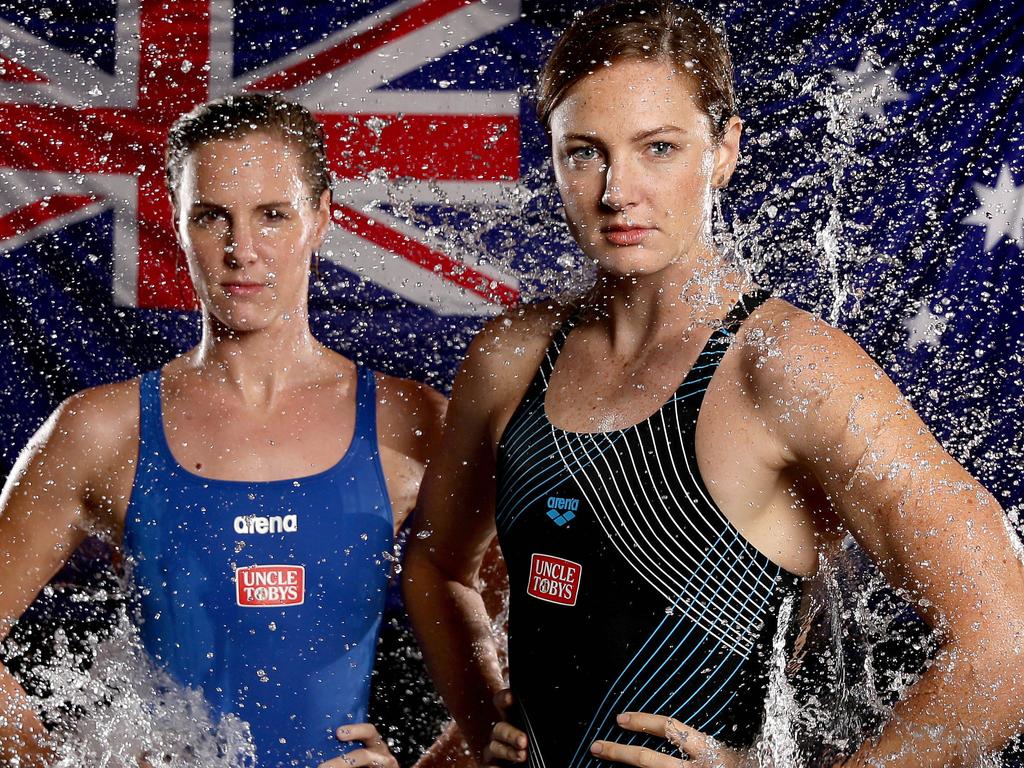
Beneath the acute disappointment of missing Paris, Cate senses a more soothing emotion.
“It’s a relief I don’t have to compete against Bronte anymore. It got harder each time as the stakes got higher. The fact that we don’t have to do that anymore is really lovely.
“I achieved what I did because I had her keeping me accountable. And vice versa. I made her a better athlete. She did the same. It’s beautiful. There’s so much love and respect, but it wasn’t always easy.
“Now I can cheer her on and not be “please don’t get so too good so that you beat me!
“As we grew and matured, and she got better and faster and we were really pushing each other and juggling for who was going to be the best, some years we were like, first and second in the world rankings. Bronte wasn’t and still isn’t recognized for the incredible athlete that she is.
“For a long time she was known as Kate’s sister not as Bronte in her own right. I can’t begin to imagine the fortitude of character that she had to have to forge a name for herself, to not be bitter or to keep things as friendly and as civil as we managed to for as long as we did.’’
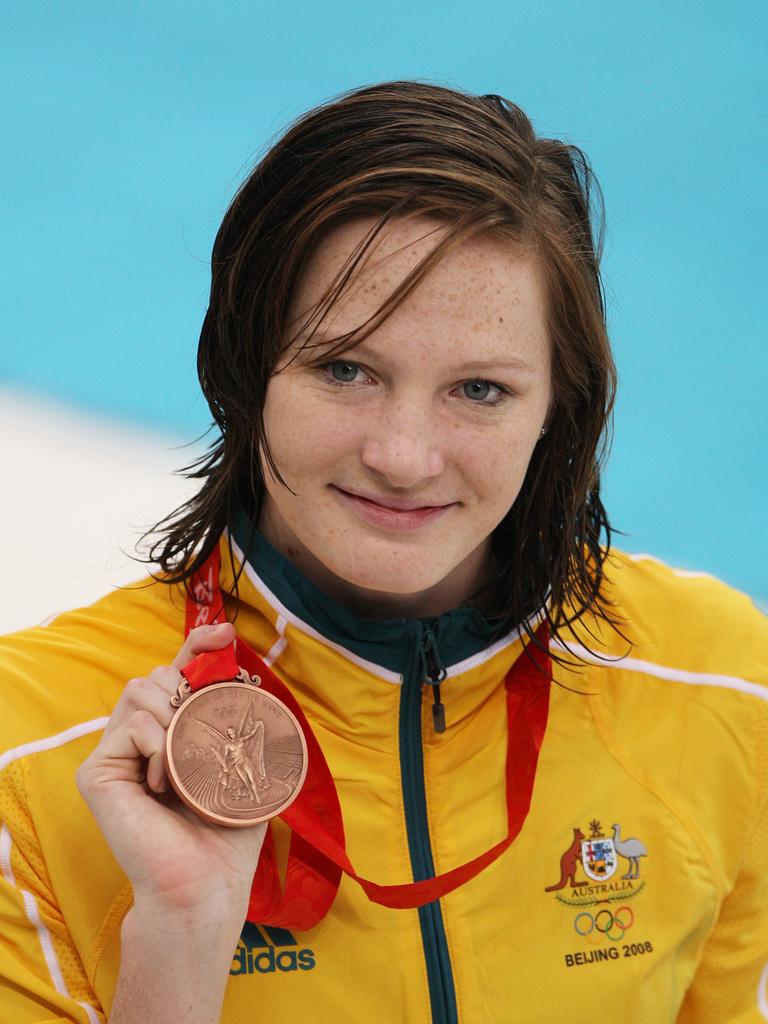
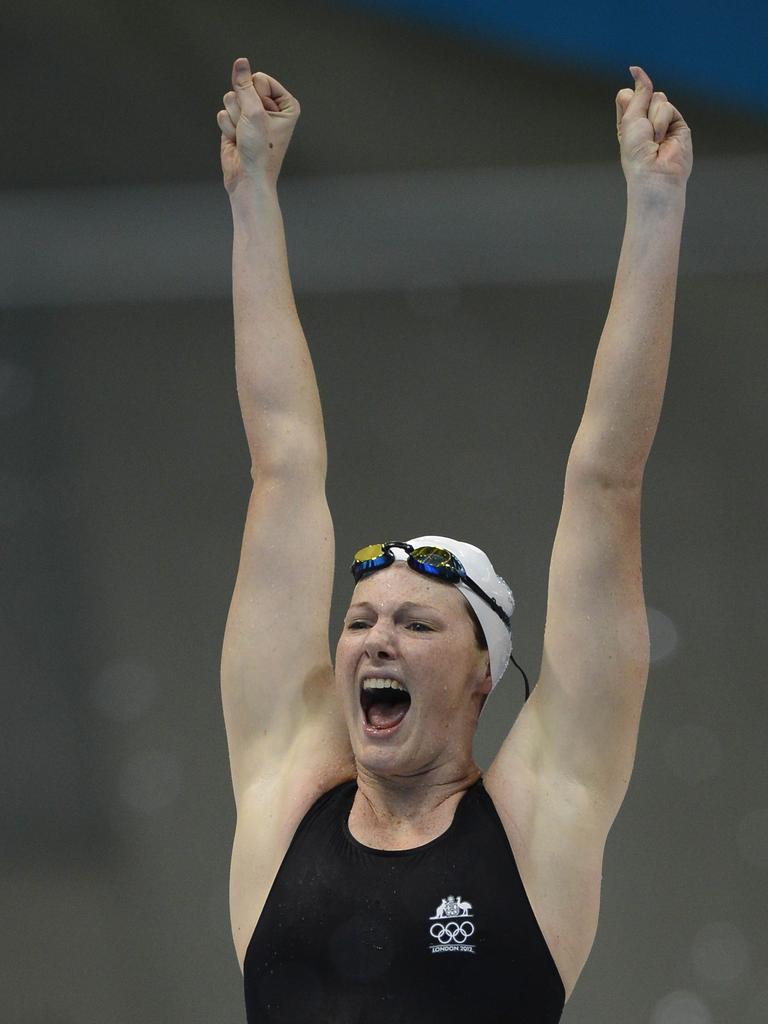
The Campbells hail from the landlocked African nation of Malawi and Cate famously swam at a dam in Lake Malawi near Hippopotami frolicking in the distance.
When they came to Australia in 2001, little ol’ Brisbane seemed like Brisvegas compared to the life they left behind.
“One of my clearest memories after coming to Brisbane was we used to wake up to watch the garbage trucks empty the rubbish hit at 6am Monday morning,’’ Cate laughed.
“Bronte and I would be peering out the window thinking this garbage truck with a hydraulic arm was just the best thing ever.’’
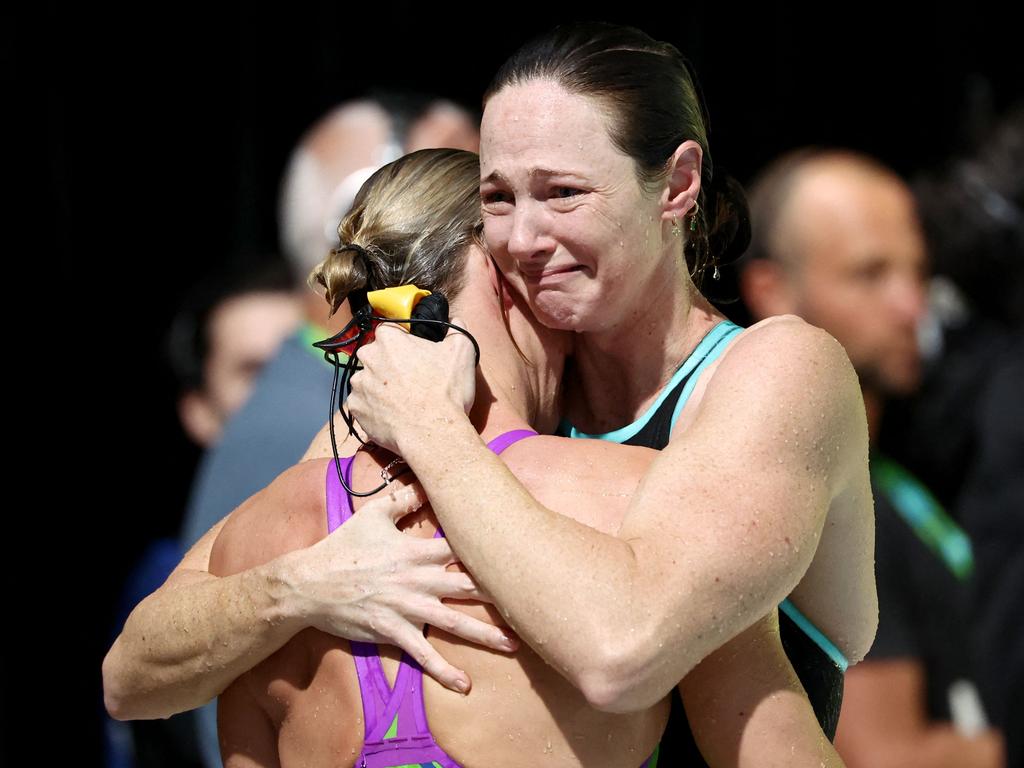
WHAT FEUD?
Campbell is surprised and dismayed at the continued fallout of her comments in July last year at the world championships in Japan where she called the USA “sore losers” on Australia’s Today Show.
It came after American broadcaster NBC displayed the total number of medals won, rather than the number of golds, which enabled America to top the table.
She made the comments in jest but a recording of them was shown to American pool king Michael Phelps before the USA trials in Indianapolis earlier this month. With all the choreographed fury he could muster, Phelps said: “If somebody said that to me, I would lose it.’’
Campbell insists she was joking and is aghast that so much has been made of it.
“A feud requires animosity on both sides and there is zero animosity coming from me. I have nothing but respect for the American swimmers and everything they’ve achieved. Michael Phelps is the greatest Olympian I have ever watched. Then there is Katie Ledecky who is the greatest distance swimmer of all time.’’
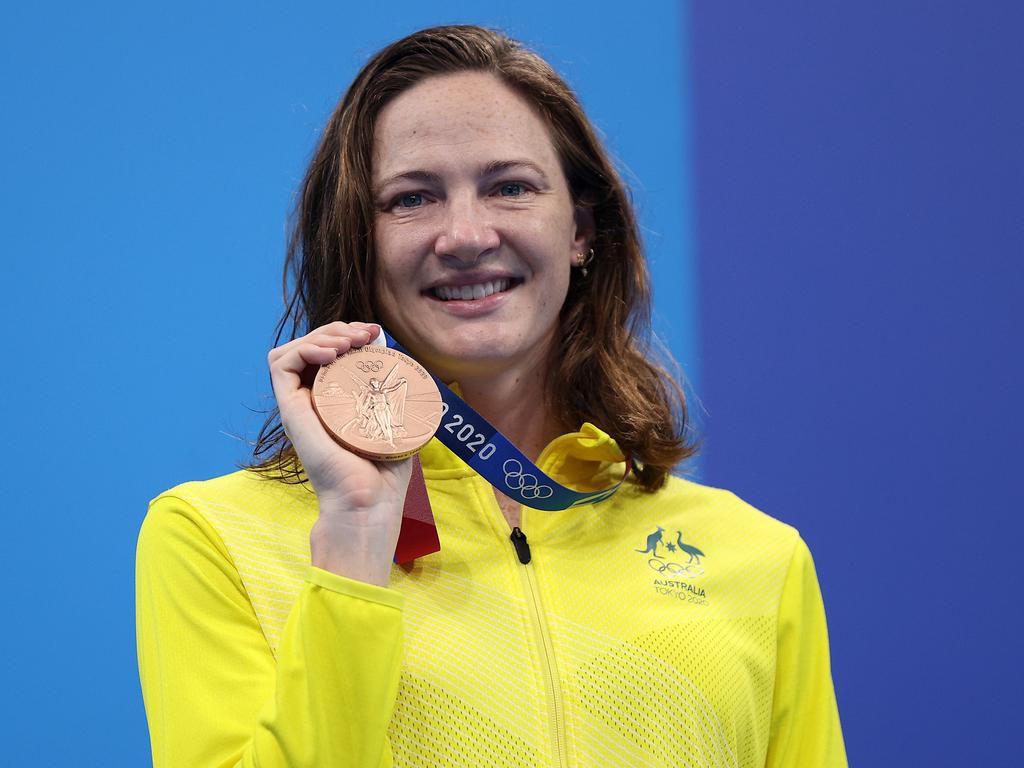
GROWING FROM ADVERSITY
Campbell’s career is littered with medals and records but she believes her greatest disappointment – finishing sixth from lane four in the 100m freestyle at Rio in 2016 after a slow start - was the trigger for most personal growth as utter devastation morphed into candid self-analysis as she took a year off.
“It was one of those things which was going to define you no matter what. I chose to embrace it, make it part of my narrative.
“I learnt you can’t just push it away. I’m not proud of it. But I am proud of how I handled it. It changed my outlook. We are guilty in the world of high performance for judging people based on performance. I get that. But it helped me to see the human side to elite sport.”
“I was faced with my mortality. It was a huge identity scare.‘’
Campbell was asked to do a drug test the night of her Rio failure but the scene which later greeted her in the Olympic dining hall was one of the most touching of her career.
“I was ashamed. I wanted to hide away from everyone. It was after 2am by the time I got back. But a group of swimmers – Matt Abood was one – waited for me in the hall because they did not want me having dinner by myself. It was almost 3am but they were saying they still loved me. I will never forget what they did.’’
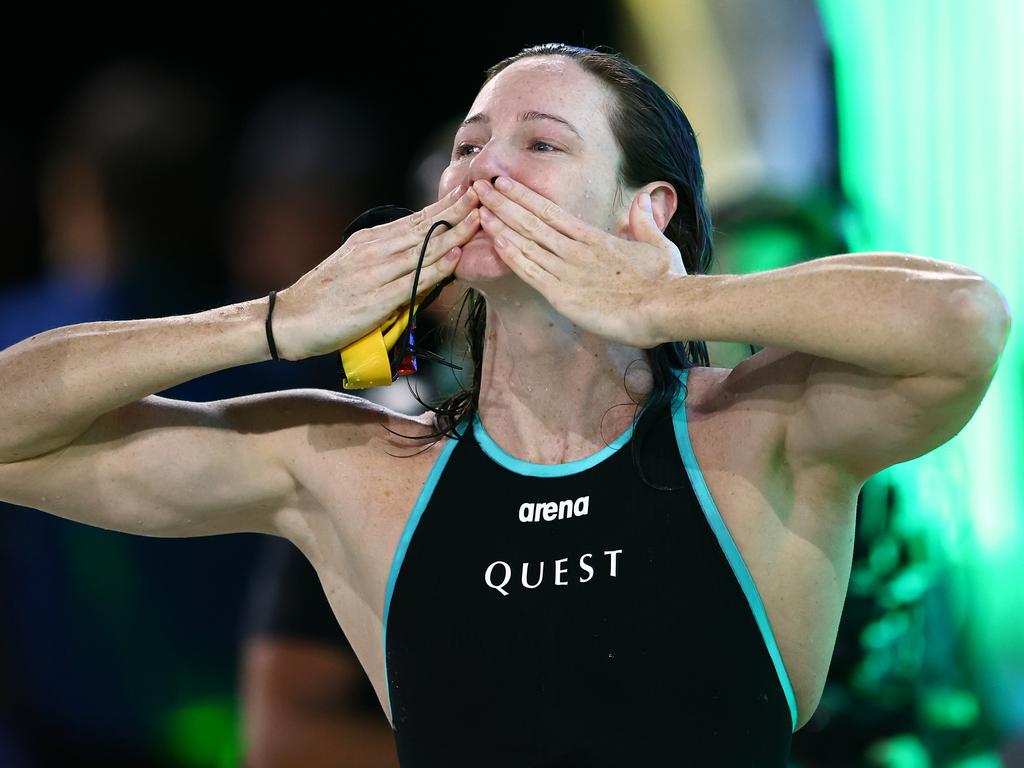
WHATS NEXT
Campbell’s career finished with an unscripted but hugely emotional send off at the Olympic trials in Brisbane when rival swimmers embraced her after her last swim..
Then, in private, as messages from the likes of Dr Chris Brown, Matilda Hayley Raso (“I can’t believe they even knew my name!’’) and decades worth of old friends came in, she fulfilled a long held promise to herself to literally cut the cord.
“I always said that after my last swim I would cut my swimsuit off with scissors and that is what I did. I don’t have any swimming memorabilia at home but I am getting that cut swimsuit framed.
“That night was special. There were so many emotions going through my body at that point. I always knew saying goodbye to swimming would be emotional. There was immense relief it was over. The last six months have been very tough.’’
Campbell is not totally sure what lies ahead – she has ruled out politics – but wants to be part of Brisbane’s drive towards the 2032 Olympics.
If they want someone who can commit with fastidious commitment to a long term project, she’s got the form.
“I spent 15 years of my life taking three tenths of a second off my 50m time. But I loved it. Most people don’t get to test their limits.’’
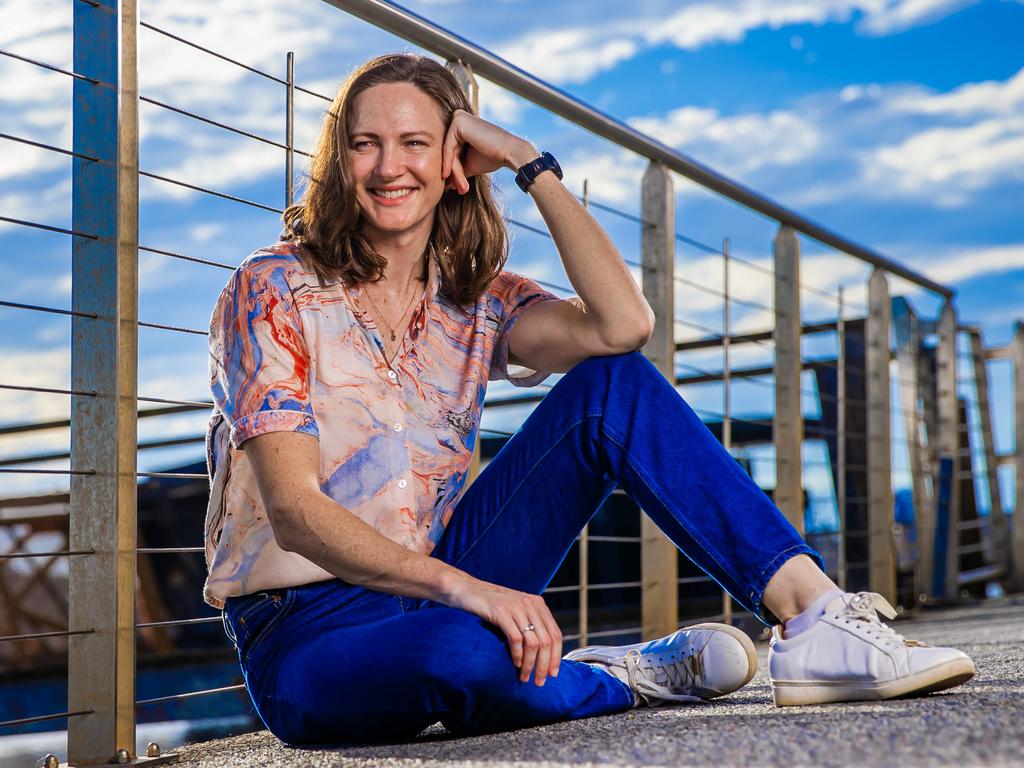
CATE CAMPBELL: HITS AND MEMORIES
IN RETIREMENT I WILL NEVER: Eat another protein bar.
IF I STARTED AGAIN: I would tell my younger self to relax a bit more. I was very determined and focused from a young age. I don’t regret it, it helped me - but not as much as I thought it did.
THE SWIMMER I LOVED WATCHING: Recently, Ariarne Titmus. Her stroke is so even and balanced. Her ability to maintain speed is just so beautiful to watch.
GREATEST MOMENT: The moment of most pure joy was qualifying in the 2012 London Olympics alongside Bronte in the 50m freestyle. It was the realization of a dream we had from when we were seven and nine. It was in the 50m freestyle. We thought the 100m was her best shot - and she failed to make it - so we thought going to an Olympics together was over. Then we did.
MY BIGGEST WEAPON: Probably my strength. If I could be strong I could be fast. I worked hard in the gym, doing chin ups with 45kgs around my waist.
TOUGHEST MOMENT: Not winning the 100m in Rio in 2016 and the aftermath of it. It was a point of reckoning for me. I had to come to terms with the fact I was fallible and I had to find who I was outside the pool. But I learned a lot and it actually kept me in the sport.
AN OLYMPIC VILLAGE MEMORY: As a teenager I lost my mind in (Beijing) in 2008 because there was a 24 hour free McDonalds. In the second week I had just one meal that wasn’t from McDonalds.
THE MOST AMAZING SWIM I’VE SEEN: Michael Phelps in (Beijing) 2008 was an absolute masterclass in winning eight gold medals. I was so young but I watched him on the pool deck. Just looking at his professionalism. It was a marker for me of the level you needed to be if you wanted to be the best.
BEST ROOM-MATE: Bronte and I used to room together. She was pretty good until she got the munchies at 1am. I could hear her ferreting around searching for a muesli bars.
More Coverage
Originally published as Four-time Olympic gold medallist Cate Campbell’s extraordinary training drill —and biggest weapon — that made her one of the world’s greatest swimmers









